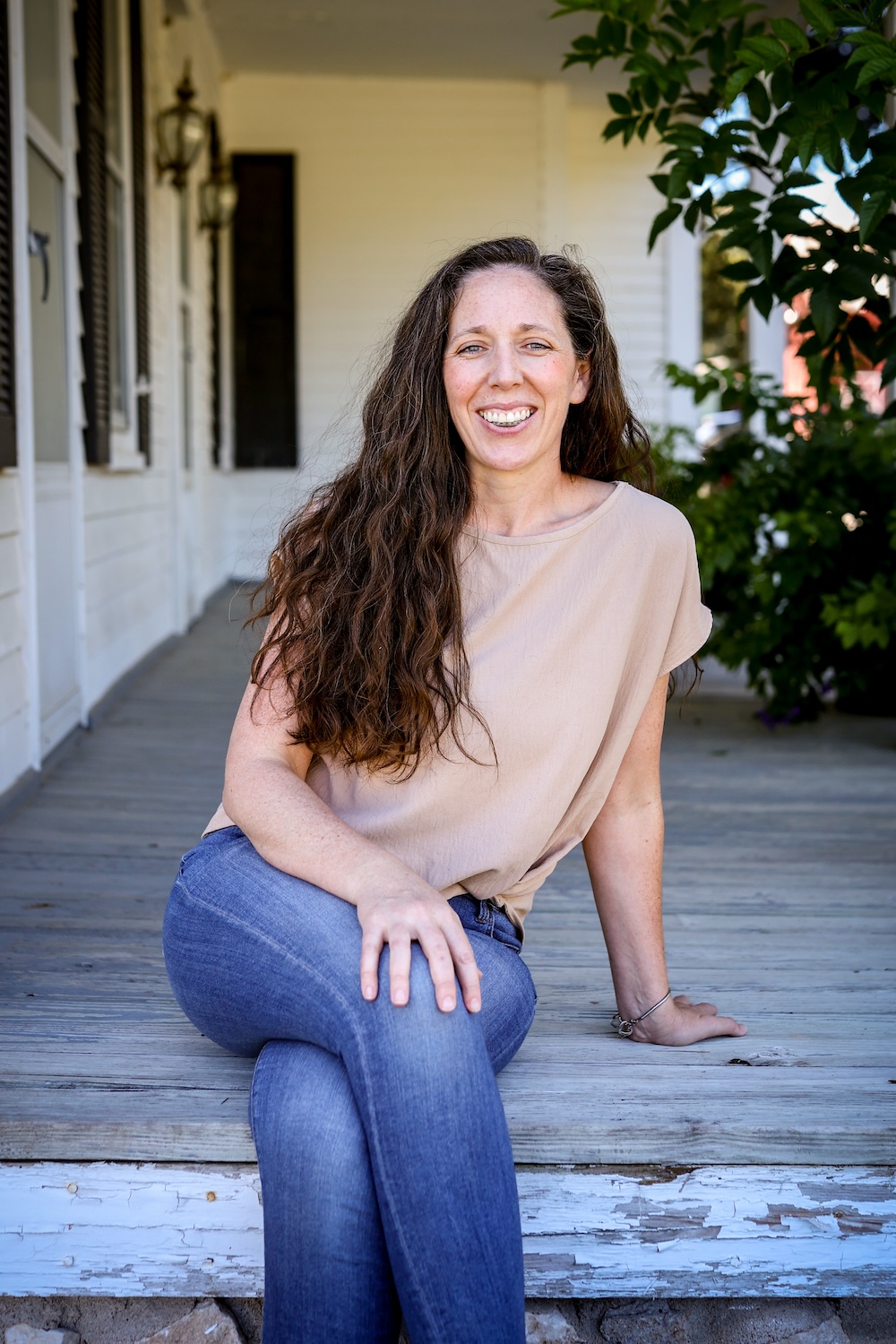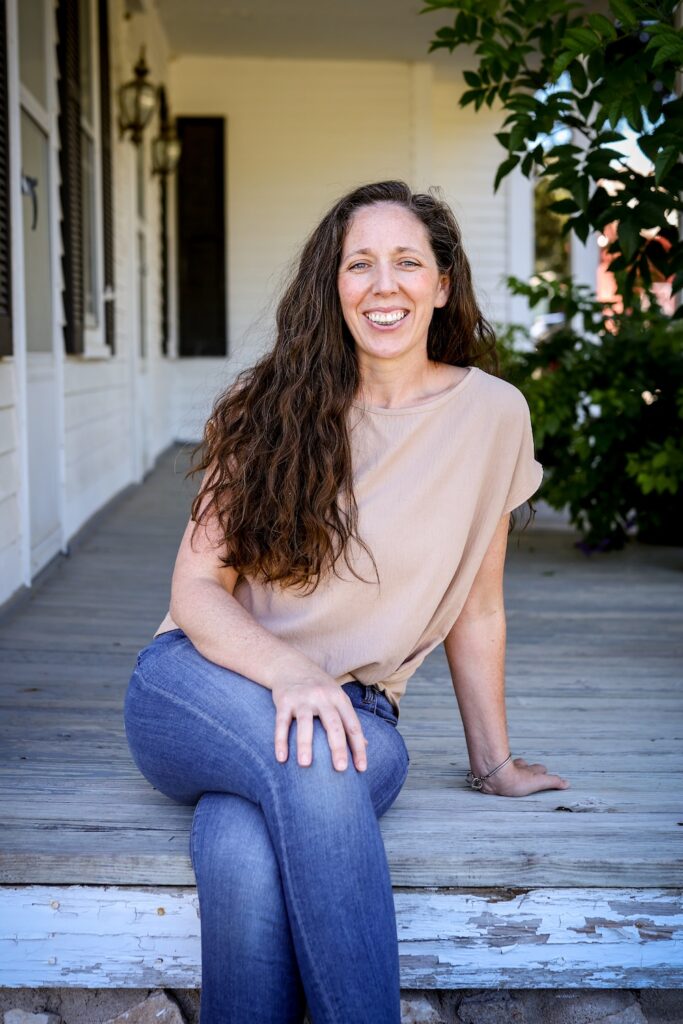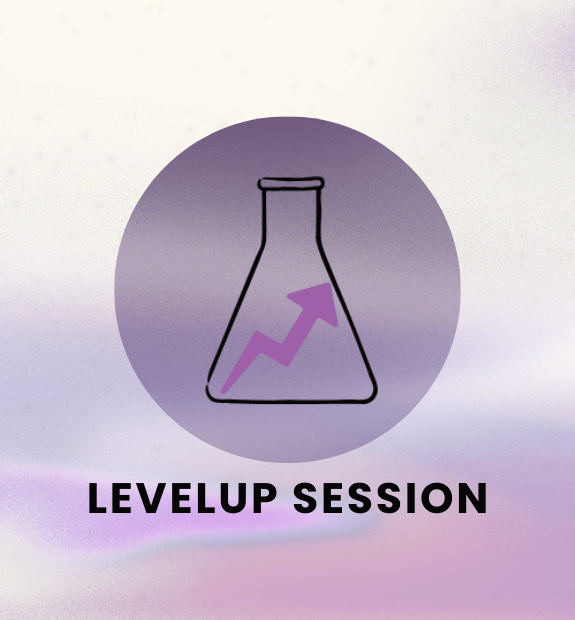Episode 278 24 Sep, 2025
What Is EOS? How It Creates a Values-Aligned Culture for Group Practices with Tara Vossenkemper
-
 With Tara Vossenkemper
With Tara Vossenkemper

What does it really mean to run a values-aligned practice?
As a group practice owner, I’ve learned how powerful it is to build a culture that actually reflects our values. In this episode, I sit down with my friend Tara Vossenkemper to answer the question “what is EOS?” and explore how it helps us create a true values-driven meaning in our practices.
Tara and I talk about her journey with EOS core values, why it’s so important to stay values-aligned, and how leaders like us can be intentional in demonstrating values in the workplace. We share real stories, mistakes, and lessons from our own practices so you can see what this looks like in action.
Here’s what you’ll hear in our conversation:
- How EOS core values provide structure for a sustainable values-driven meaning in group practice
- Why so many owners struggle to define their values — and how EOS makes it easier
- Practical ways of demonstrating values in the workplace that actually change culture
- Hiring strategies to build a team that’s truly values-aligned
- How doubling down on EOS core values shapes culture, leadership, and long-term success
If you’ve been asking yourself “what is EOS?” or struggling with how to live out your values-driven meaning, this episode will help you lead with clarity, confidence, and alignment.
LINKS:
Need extra support? Join The Exchange, a membership community just for group practice owners.
The Group Practice Exchange Programs + Courses
The Accountability Equation™ Quiz
The Accountability Equation Book
Group Practice Forecasting Support GPT
CONNECT WITH MAUREEN HERMANN & THE GROUP PRACTICE EXCHANGE:
CONNECT WITH TARA VOSSENKEMPER:
Culture Focused Practice Podcast
SPONSORS:
TherapyNotes: An EHR software that helps behavioral health professionals manage their practice with confidence and efficiency. Go to therapynotes.com/r/thegrouppracticeexchange for two free months!
GreenOak Accounting: An accounting firm that specializes in working with group practices. Mention TGPE to get $100 off your first month!
Transcript: Tara Vossenkemper
[00:00:00]Maureen Hermann: Hey, hey, welcome back to another episode of the Group Practice Exchange Podcast. Today I’m gonna be talking with Tara Vossenkemper on creating a values driven culture through EOS and courageous leadership. She is a group practice owner and consultant, and a speaker who helps other practice owners and leadership teams build thriving teams and cultures without losing their minds in the process.
[00:00:23]Maureen Hermann: She’s known for blending humor with actionable insights. And she leverages her own experience of running a successful mid-size group practice to help other leaders tackle hiring challenges, streamline their systems using EOS entrepreneurial operating system, and creating workplaces that people genuinely love.
[00:00:41]Maureen Hermann: When she’s not podcasting about practice ownership or facilitating mastermind, you’ll find her traveling the country in her rv. Homeschooling your kids and dreaming of one day planting a chestnut orchard and getting back into homesteading. So I’m super excited to have her on. She’s a friend of mine, and we’re gonna be talking about all things.
[00:00:59] Maureen Hermann: EOS and leadership. Welcome to the Group Practice Exchange Podcast, where we talk about all things related to group practice ownership. I’m your host, Maureen Hermann. Therapy Notes is changing the game for mental health professionals. It’s an all-in-one EHR practice management and billing platform that actually makes running your practice easier.
[00:01:23] Maureen Hermann: From secure client messaging and scheduling to notes and billing. Everything’s in one place and their 24 7 customer support is truly unmatched. You get a real person, a live human every single time you call. Their latest update therapy fuel is a total time saver. It’s a built-in AI tool that helps you get through documentation faster.
[00:01:42] Maureen Hermann: Think progress notes from transcripts or summaries, contact notes created from secure messages and automated summaries of client history forms. Users are already saying that it’s saving them hours every week. Other new features worth noting is Automated recurring payments for clients, electronic billing for secondary insurance, and a growing outcome measures library to make tracking progress even smoother.
[00:02:05] Maureen Hermann: If you’ve been on the fence, now’s the time to try it. Head over to therapy notes.com. Click start My Free trial, and use the promo code TGPE to get your first two months for free. See why so many therapists trust therapy notes to support their practice, including me. Struggling with your practice’s finances.
[00:02:22] Maureen Hermann: Let me tell you about Green Oak Accounting. Green Oak is the industry leader in mental health accounting, and they know exactly what it takes to help your practice thrive, especially when you’re scaling up. Green Oak is set apart from the rest by their deep industry knowledge and top-notch advisory and CFO services.
[00:02:38] Maureen Hermann: Plus they offer traditional accounting services like bookkeeping, tax prep, valuations, and so much more. Here’s what’s in it for you. Peace of mind, financial clarity, and the potential to significantly grow your practice and profits. In fact, green Oak has the most impact with practices looking for financial guidance when leveling up thanks to their CFO services.
[00:03:01] Maureen Hermann: They’re not just about crunching numbers. They also offer a mix of resources like the Therapy for Your Money Podcast, the Profit First for therapist book and self-guided courses to keep you informed and empowered in growing your practice. Ready to transform your practice’s financial health. Visit www.greenoakaccounting.com to explore all that they have to offer Green Oak accounting.
[00:03:26] Maureen Hermann: Your partner in financial prosperity.
[00:03:33] Maureen Hermann: Hey, Tara. I am. Hi. So excited to talk to you today about this. I know EOS is such a huge thing in your life and in your businesses, and I do something similar but different. So it’ll be really fun to talk to you about, you know, just the differences between the two and how you find EOS to help the culture in your business.
[00:03:54] Maureen Hermann: Because I know culture is like. One of the core topics that you talk about with group practice owners. So I know that a lot of my listeners are gonna already know who you are, but like for those that maybe are new to you, tell them about you and EOS. Like why is EOS your thing? Why do you teach about EOS?
[00:04:11] Tara Vossenkemper: Okay, so maybe this is a little bit of like an abstract answer, so let me like start there and then I’ll bring it down. But I feel like my brain always needs something big enough to contain the things that are happening in my life. And so. The visual that always comes to mind from is paper mache. Like if I’m, like, when you’re doing paper mache, if you like blow balloon, then you have to put the strips of paper on top.
[00:04:31] Tara Vossenkemper: You have to cover the whole balloon. I feel like I was especially business early on and may, I’m sure you can relate to this, but when I first started my group and I was like building shit out, I didn’t have, there was like no structure. I was doing what needed to be done and I had these ideas, but there was no like organizing body and nothing that helped me mentally file away and understand how things were laid out and structured in a like digestible, palatable.
[00:05:03] Tara Vossenkemper: Not overwhelming, not water hosing type way.
[00:05:06] Maureen Hermann: I think you and I are both can be water hoses, right? Yeah. And we have that in common where like we have an idea and then we’re like, let’s go 100% in Yeah. And freak everyone in the business out.
[00:05:17] Tara Vossenkemper: Yeah. Yeah. Especially early on. Yeah. I had people who were like, one of my, my d my director of clinical ops now, she’s been with me for years, you know, and I remember years ago she was like.
[00:05:26] Tara Vossenkemper: You can’t tell me your ideas. She’s like, uh, okay, I’m gonna like change my whole schedule and think about blah, blah, blah. And she’s thinking about it and trying to get it going. In my mind, I’m like, bitch, that’s just an idea. Like, I’m not doing anything with it yet. Like it’s just this and we should do this and we can blah, blah, blah.
[00:05:39] Tara Vossenkemper: You know, it’s like there’s all this stuff that’s coming out of me that. Sometimes isn’t irrelevant or I might be talking about it now, but it’s like a five years down the line sort of thing, you know?
[00:05:46] Tara Vossenkemper: Yeah.
[00:05:47] Tara Vossenkemper: So I think, like, I literally stumbled into EOS because I had a painter come and give me a bid and he was a small painter in the area that I was, you know, we’re in, my office is in, we were talking shop, we were talking business shop, and he was like, you need to read the book Traction.
[00:05:58] Tara Vossenkemper: And so I just did. I bought it and I was like, okay, cool. ’cause at that time I was just, just devouring all the business books, you know, and I read traction. I mean, I knew like a chapter and a half in, I was like, yeah, yeah, this is the thing that I need that I didn’t know how to ask for. I didn’t know how to talk about the thing that I needed.
[00:06:16] Tara Vossenkemper: Yeah, I
[00:06:16] Tara Vossenkemper: knew how to like create structure in different areas and like create what I needed and try to organize it, but I couldn’t go bigger. Like it was hard for me to conceptualize a bigger framework. To maintain business like, well,
[00:06:28] Maureen Hermann: I like your paper mache analogy because it’s like each system was like a patch on this balloon, but like it wasn’t fully covering.
[00:06:36] Maureen Hermann: And I’ve read EOS as well, and so it does have this like. Framework where all the systems actually fully encapsulate the balloon so that they all are working with each other. And I think the phrase he uses is for an integrator, which is like a, a big core person in the EOS system, the person that makes sure all of the different departments are running like o right?
[00:06:57] Maureen Hermann: Like the glue that holds everything together. So it makes sense that you would kind of be drawn to that system.
[00:07:04] Tara Vossenkemper: Yep. I knew before then how much the culture and the vibe was important to me. And we were doing things like, I knew this and I was doing things to try to like formalize and like keep it front and center because you can’t have structure without culture to me.
[00:07:18] Tara Vossenkemper: Like they just, they’re so, you know, it’s both. And to read, you know, of course there’s like Daniel Foyle’s culture code, which is my, yeah, you love that book too? One of my, I love that book so, so much. You’re the reason I read that book. Oh, so good. It’s so, so good. He’s the only person I’ve ever written fan mail to Daniel Foil because I loved it so much.
[00:07:37] Tara Vossenkemper: Yeah. I was like, start with why fuck you. Like I need culture code. Like I oh, so, so good. I still love it. I think about it all the time. I think about these stories in the book, like Tylenol Story and like. The dis spurs, like the basketball coach. I, I always think braggart, Popovich, you know? Yeah. I just, anyway, so incredible.
[00:07:55] Tara Vossenkemper: But also right away getting into like vision and values in the book. You know, the, the way that they laid out in traction, one of the first chapters is vision, and he gets into values and it was like, yeah, like that’s what I, I need to formalize this thing that we’re doing, but I didn’t have like language or a container for, so it’s the same like the entire book.
[00:08:13] Tara Vossenkemper: I felt the same way, where it’s like, this is what I need. I needed something to be able to capture. What we’re doing in a way that I could, like, I can see it. I need that really, really high level view. Yeah. And then I’m gonna be able to drill down and like get into it.
[00:08:24] Maureen Hermann: So, so you know, I’m sure you’re seeing this too, is that culture and how we create and maintain culture now looks very different than, I don’t know, a decade ago.
[00:08:37] Maureen Hermann: Plus when we started practices. And I think, you know, a portion of it is post COVID, a lot of expectations. Changed. I think the relationships between leadership and employees shifted. I also think a new generation of people came into the workforce that have very different, yeah, yeah. Expectations and ways of navigating the work world and all of that has shifted.
[00:09:01] Maureen Hermann: Like what used to be, I thought, very easy. Culture building now feels a little bit more difficult. Mm-hmm. And so I would love to hear, you know, since culture building is one of your key things that you talk about, like what are you seeing in terms of mistakes that group practice owners are making these days that are a major hindrance to building a healthy culture in their business?
[00:09:23] Tara Vossenkemper: Yeah, I think, I don’t mean to be like. Simple or reductionistic or paint really broad brush strokes with an answer. But I probably two like main things that come up for me are, number one, people think that they have their values defined, but they don’t.
[00:09:40] Tara Vossenkemper: Mm-hmm. And
[00:09:40] Tara Vossenkemper: then number two, they’re not actively applying.
[00:09:44] Tara Vossenkemper: And so let me just take one step back and say core values. Are a part of culture. I don’t think they’re everything, but they’re a major part of culture. Yeah. And so they’re the simplest one to talk about and they’re the simplest one to like assess if you’re implementing. So I think that people don’t have them clearly defined.
[00:10:02] Tara Vossenkemper: Yeah. And they say, well we, you know, we value this. And I think, okay, is it operationalized? Have you defined it for your team? Do you have examples? Does everybody know? Is it written? Could your team tell me what your values are? And if the answer is no, then you’re not clearly defined. Right.
[00:10:16] Maureen Hermann: I remember in my practice, anti-oppression has always been Yeah, yep.
[00:10:20] Maureen Hermann: A core value in my business. Yeah. But it wasn’t until probably just after George Floyd, where we really looked at like, what does it mean when we say we’re anti-oppressive? Yeah. And realizing, like saying it. And me being, it doesn’t mean that the practice is, yeah. And like since then, every conversation we have, so to your point of like, do people actually know in the business that this is a value and then do, is it operationalized?
[00:10:48] Maureen Hermann: Like is there a way to see it in action? Yeah, so like every conversation that we have, whether it’s around supervision, client supervision, whether it’s around like. Policies and procedures, like our sick policy, our time off policies we’re, we are like, how does this butt against anti-oppression? How can we, like we went from a few years ago, a handful of years ago, went from having like set holidays.
[00:11:13] Maureen Hermann: To being like, it’s actually not anti-oppressive because there’s people that celebrate different holidays that are just not a part of ’em. Yes. So now we have like pick your, pick your 12 out of the year. Yeah, those are your holidays. Pick my year. Love. Those are all yours. Yeah. It’s just a simple example of like how we operationalized, I guess.
[00:11:28] Maureen Hermann: Yeah. That one specific value. Yeah, of course. We’re doing it constantly, so sorry to interrupt, but yeah, that’s, no, no, that’s a
[00:11:35] Tara Vossenkemper: fantastic, yeah, that’s such a fantastic example, which is. You know, through your values. I think of them as a filtration system. I think a lot of things are like filters, but even in the very beginning of like when you’re hiring somebody, how are you actually baking in values to that hiring process in such a way that you’re assessing it from more than one angle.
[00:11:52] Tara Vossenkemper: Yeah. So maybe in your meet and greet, you have your team. Queued up with, you don’t need to ask anything specific, but as you’re listening to answers, be running it through a values filtration system. When you’re doing like a formal interview process, when people are coming on, when they’re reading about the position, we highlight our values, of course, in our position description, point them to the website, talk about it.
[00:12:12] Tara Vossenkemper: When we do a phone screen, it’s like multiple steps of the way. Here’s what’s up. Like it’s expected, you know? And exactly what you’re saying, if we’re making decisions, we’re thinking about, is this in alignment with our values? Yeah. When we’re thinking about people issues, of course we’re looking at like perform, there’s metrics, duh.
[00:12:27] Tara Vossenkemper: Yeah. You know, like, but that’s in my mind there’s like performance related metrics stuff, and then there’s values related or culture related, which is gonna be stuff like values are gonna be a simple way of assessing, right. You know, with if there’s a person issue, identifying, is it performance like numbers or is it right.
[00:12:43] Tara Vossenkemper: Like something’s off with the vibe. Yeah. And then in that case, you can still can quantify that, but it’s just gonna look a little bit different and it should be based on, again, that’s where values come into play. Yeah. So I would say, yeah, those are like going all the way back, like two sort of main things I would say is not having your values clearly defined and shared by all, and then also not living them out and not integrating them intentionally, like assimilating them or integrating them into.
[00:13:09] Tara Vossenkemper: Everything you do.
[00:13:10] Maureen Hermann: Yeah, everything. So to that point, ’cause those are two really different points. I mentioned how we shifted in one of those points, which is like we, from at the anti-oppression lens, we leadership are looking at every policy procedure every year. We’re like, how does this, yeah, I love this, but against it or not, how do we shift?
[00:13:28] Maureen Hermann: Like there’s a lot of things that in business will go against being anti-oppressive. And so you have to constantly look at what you’re used to. Versus like how to intentionally change it. But one of the other things is like making sure that your team as a whole is that, is that value? Because it’s one thing for leadership to value it, but if you keep hiring people that aren’t aligned, and what I noticed was since I started my group practice, I always had our values, right?
[00:13:54] Maureen Hermann: That those haven’t changed. But what I would do is like. In our interview screening process, it was like, check boxes like this, these are our values. Like do you, you know, do those align with you? And they would check yes or no. Who’s gonna say no if they’re looking for a job? Exactly right. Yep. And so it was years that we had that.
[00:14:10] Maureen Hermann: And then we’d be like, why don’t they know anything about like being anti-oppressive? They didn’t say that, you know? And so it took years for us to like peel it apart, I should say. And get to a point where in the interview process we’re asking, like in this specific arena, we’re asking like questions where it’s really hard for that person to have answers that sound anti-oppressive when they aren’t, like, it’s almost impossible to do.
[00:14:35] Maureen Hermann: ’cause we’re asking about like how are they’re engaging in the community from anti-oppressive ones, what’s the last thing they’ve done? Like those kind of things. Yeah. Which then have created. Truer values aligned to people. Yes. Where they’re like, they’re actually living that value. They’re not saying like, yeah, in theory I love that, but I’m not gonna do anything.
[00:14:52] Maureen Hermann: You know? Yeah, yeah. Inc. Include myself in that. Like, you make that happen, business owner, it’s like, actually no, that doesn’t, there’s no way for a business to have values if the people, all of them in it. It’s everybody.
[00:15:04] Tara Vossenkemper: Yeah.
[00:15:05] Tara Vossenkemper: Yeah.
[00:15:05] Tara Vossenkemper: That’s what I’ve said to the team too, is it’s like we, you know, we talked about these values, but this is not, this is a shared responsibility.
[00:15:11] Tara Vossenkemper: I might be the one that’s sort of. I as visionary might be the one that’s accountable, like I call myself. The culture are like, it’s like, Hey, this is my domain. This is one of the most important things to me as a visionary, and everybody has a role in this. Mm-hmm. Everybody, there’s a shared responsibility for living out the values because I am not all around all the time.
[00:15:33] Tara Vossenkemper: I’m not gonna be the only one that’s like, everybody lived the values. Of course I am gonna be that person. Yeah. But you’re coming on because you are in alignment. You’re, we’re gonna celebrate these things. I wanna hear from you who’s done what? That’s been like a value shoutout. I mean, yeah. Yeah. And love what you’re saying too about the hiring process.
[00:15:49] Tara Vossenkemper: This is also why fucking hate referrals. Like, don’t gimme a referral, write ’em down. Fine. I’m not gonna call a referral. Who’s gonna put a bad referral down? Yeah. What this is like. To me, this is just like, it’s busy work. It’s like doing it for the sake of doing it. I like, what’s the referral gonna tell me?
[00:16:04] Tara Vossenkemper: Yeah. Anyway, but it feels the same with like yes no values questions. Do you believe in authenticity and candor? Yeah. Yeah, definitely. Yeah. Okay. But let’s take that a step further. Tell me about a time when you lived out authenticity and candor in your life. Whether professionally, whether personally, yeah.
[00:16:19] Tara Vossenkemper: What’d you do? What was the outcome? How did you live out? Candor in particular, how have you brought up hard things? Like it’s getting details from people about. The values and how they’ve actually lived them out. It’s not just hearing yes or no from them.
[00:16:31] Maureen Hermann: Yeah.
[00:16:31] Tara Vossenkemper: Yeah. So just piggybacking off what you said, because Absolutely, yes.
[00:16:34] Tara Vossenkemper: That’s great.
[00:16:36] Maureen Hermann: What advice or feedback do you give or, and or what experience maybe have you had in this arena? So either one of these. Route you can take when it comes to having a team or having people on your team who then aren’t values aligned and now they’re already there. ’cause I envision there’s a lot of people, you and me both included.
[00:16:56] Maureen Hermann: I know where like the real focus on value driven leadership didn’t start the day we started our group practice like we hired people. Even though we might have had values, maybe we didn’t express it the right way or we weren’t screening in a way. But like I know I’ve had many people in the history of my group practice that weren’t values aligned because I wasn’t, I wasn’t doing the work in the right way to make sure that I was bringing the right people on.
[00:17:23] Maureen Hermann: And I know that there was a time for you as well with this. So I guess, what is your feedback for people who are in that process right now, especially where they feel like their team is just not aligned very well? The culture isn’t the greatest. What do you do or what feedback do you have for people when they’re at that spot?
[00:17:39] Maureen Hermann: Like, to start course correcting?
[00:17:41] Tara Vossenkemper: Yeah. Um, this is where I think traction can come in handy. So we set our core value. I, it’s like a two part answer. The first part is when you’re creating values. Only focus on what you want and do it with people like, great. So when, when you create values, if you’re doing it from an EEO S approach or if you’re looking at traction, you are, in essence, you wanna pick people that you would love to clone and just have them fill out your entire team and then write down everything about them.
[00:18:09] Tara Vossenkemper: That’s incredible. Then they call it keep kill combined, but like do this with your leadership team and then condense all of those things together and then go through the list and you come up with, you know, three to seven values. Okay? So long story short, make sure that whenever you are creating your values, if they’re not created or if you’re assessing them, do it with the positive people in mind.
[00:18:26] Tara Vossenkemper: Do not create values as a way of fixing problems with people who are underperforming or just don’t fit. Don’t do that. The caveat is, so that’s one thing is value should be based on what you want. Exclusively, like go for that. And then you would do, of course, people analysis for everybody there and see who hits that bar or not.
[00:18:45] Tara Vossenkemper: The second piece is when you have somebody, maybe there’s three parts, sorry. When you do have somebody who leaves or like doesn’t work out, and I will say that that’s been helpful for tweaking our values. We had somebody leave once. I remember talking to my leadership team and the conversation was like, we were missing something.
[00:19:07] Tara Vossenkemper: Like, we are missing something because they weren’t caught over here with metrics and they, like what happened with them isn’t really captured in our values right now. Like there’s something fundamentally wrong about them being here. The seat wasn’t wrong, the person was not the right fit, but what did we miss?
[00:19:25] Tara Vossenkemper: Yeah. And so we were able to really like use that as. A helpful way to reflect on our values and we adjusted them and they’ve stayed the same ever since. So that’s what I will say is if you have them set based on good people and then you, you might catch gaps at some point when the wrong fits leave, you know?
[00:19:44] Tara Vossenkemper: Yeah. And then you can use them to try to tweak or like run through your values to figure out are we missing anything? That’s that paper mache, another paper mache analogy comes to mind. Then the third piece is when you start doing this and you start holding people accountable to values. The people who align and want to be there, even if you’re not really sure about them, they will step up and the people who don’t will step out.
[00:20:08] Tara Vossenkemper: And so, and this is the scariest
[00:20:09] Maureen Hermann: part for every group practice owner with EOS, with my system accountability equation is like they, even though all of those people or most of those people who do end up leaving, when you really implement accountability in this way. Yep. If they leave. Even if they’re people that you are like, these are people that need, like, they aren’t a good fit.
[00:20:27] Maureen Hermann: There’s something scary about seeing a potential exodus of a handful of people who are like, mm-hmm. This is like, not what I signed up for. You know, because there aren’t, aren’t good fits. And so a lot of practice owners will stop short of that step because they’re like. Whether for financial reasons or we Yeah.
[00:20:44] Maureen Hermann: Thinking it’ll actually make the culture worse reasons. Mm-hmm. They will stop short of that accountability because they would rather, in theory, I guess, keep, uh, a bigger team, even if they’re unhappy or slowly fade them out versus mm-hmm. Create a very clear kind of system Yeah. Structure values that like.
[00:21:06] Maureen Hermann: Make people say, hell yes, or Hell no. Which is what I want. I want, I want people to only be in it as a hell. Yes.
[00:21:12] Tara Vossenkemper: Yes. Yeah. Yep. Yeah, and I think that this to me starts to get into leadership a little bit because I think that people, I don’t know what it is. I’d love leadership based stuff because I think that it’s a way of just being able to emphasize and highlight who you are as a person and how you show up, but that there’s also some core components to being a good leader, to being an effective leader.
[00:21:30] Tara Vossenkemper: And I think there’s something about. Even introducing a concept like this to your team. So if you’re not somebody who has really focused on values and you want to start because you’re feeling like this isn’t right, like something about culture is off, you can start. I’m very, I’m like overly communicative.
[00:21:43] Tara Vossenkemper: I think you are too. Like I’m overly communicative. I want people to understand what we’re doing, what the context is, what the timeline is, why I am doing it, what’s expected of them, what’s expected of us, how it’s gonna look in practice. I want them to know everything possible. Even if it’s not entirely done at this point.
[00:22:00] Tara Vossenkemper: Yeah. So in that beginning process, I might say to my team, Hey, I’m not happy with the culture right now. Something, this doesn’t feel good. It doesn’t, it’s not a place that I think people are really jazzed to be here. Like just saying like, this isn’t working for me and I don’t think it’s also working. For some of you, this could be an incredible place and I wanna strive towards that.
[00:22:21] Tara Vossenkemper: Here’s what we’re gonna start doing. We’re gonna start focusing really heavily on core values. Here’s how it’s gonna look, here’s what I’m gonna do, blah, blah, blah, blah, blah. And then you’re sort of letting people know in advance, we’re gonna start doing this. Mm-hmm. And so you’re giving them time even just by like, I hate, I hate saying like planting a seed.
[00:22:38] Tara Vossenkemper: I hate that so much. ’cause it feels manipulative. But letting them know, like I am planting, you could actively say like, I’m planting seeds ’cause I wanna see this garden. Mm-hmm. You can help me water it. You can plant some seeds too. And it’s starting now though. And so it’s sort of like letting them know that something’s coming down.
[00:22:54] Tara Vossenkemper: The pike is a little bit. And then I think opening up the conversation, like, come to me with questions, et cetera. I think it allows people to stay tuned in and feel settled, even though they know that a change is coming. It, it’s like a softer Yeah. It doesn’t mean the transition needs to be like blurred because you’re gonna have a hard line, like it’s shifting right here, you know?
[00:23:12] Tara Vossenkemper: Yeah. But. Letting them know what’s happening. That gives people time to acclimate and like prep and process and all those things.
[00:23:18] Maureen Hermann: I think also like intentionally opt in or opt out, I always find that like the more intentional we can be as leaders, the more intentional employees can be about where they work and how they do their work.
[00:23:31] Maureen Hermann: Yeah, just the better an organization is. So yes, I, yes. Yeah, I agree with you on this. Okay. Yeah, I know we’re like at the end. I could talk forever, so Yeah, you’re good. Okay. But I want people to know where they can reach you. Let us know what you’re doing these days. I know you support group practice owners in this arena and others, so let people know what you’re doing right now and how they can find you if they want help.
[00:23:53] Maureen Hermann: Yeah.
[00:23:54] Tara Vossenkemper: There’s like two main things that I do. I do a twice annual six month EOS mastermind. So I’ve been running this, it starts every six months running this mastermind basically to help people implement EOS into their practice. Mm-hmm. And so that’s been incredible. It’s been a really fun and rewarding experience and I think it’s been really helpful for people, you know, as well as I do.
[00:24:14] Tara Vossenkemper: Like folks really struggle with the implementation of this thing.
[00:24:18] Tara Vossenkemper: Yeah.
[00:24:18] Tara Vossenkemper: I’m not doing it as an implementer for the record, like I’m not an implementer. ’cause that’s way too restrictive of an environment are visionaries. Yeah. Yeah. We are implementers.
[00:24:28] Maureen Hermann: Not at all. We need the implementers in our lives.
[00:24:30] Tara Vossenkemper: Yes.
[00:24:31] Tara Vossenkemper: But, um, I’ve helped people get it going in the practice. Yeah. So there’s a six month mastermind. I think the next one kicks off in November. It starts November and then June, November and June, I think. And the other thing I do, I just do a membership, which is a, I actually have a different, I build out my own framework as well where EOS is structured with them.
[00:24:48] Tara Vossenkemper: But it’s inside the living practice is what the membership is called. Culture, leadership, eos slash structure marketing and employees, and it’s sort of thinking about your practice as a living organism. And there, I mean, it’s what you would expect out of any membership where of course there’s like resources and a community and like, uh, live training each month with me and a live q and a each month with me.
[00:25:09] Tara Vossenkemper: And so both of those things, if there’s any interest, you can go to my website and find it. It’s tara austin gibber.com or just go if you have questions and contact me with a question through the contact form. Awesome. Easy. I think that’s it though. Yeah. Yeah. It’s not much. Well
[00:25:25] Maureen Hermann: simplify. We’re all, I’m all about simplifying how we support people because the more we add, the more confusing it gets to know what you need.
[00:25:32] Maureen Hermann: Yeah. Well, I appreciate you coming on, and I know you’ve been, it’s actually been a while since you were on the last time. I feel like I, at least a couple years. Multiple years, yeah. Yeah. So thanks for coming back. Yeah, thanks for having me. Thanks for listening. Give us five stars on whatever podcast streaming service you use, and I’ll see you next week.
Thanks For Listening
Thanks for listening to The Group Practice Exchange podcast. Like what you heard? Give us five stars on whatever platform you’re listening from. Need extra support? Join The Exchange, a membership community just for group practice owners with monthly office hours, live webinars, and a library of trainings ready for you to dive into. See you next week.












